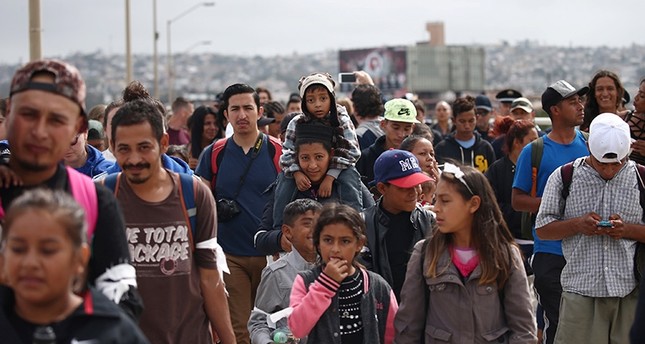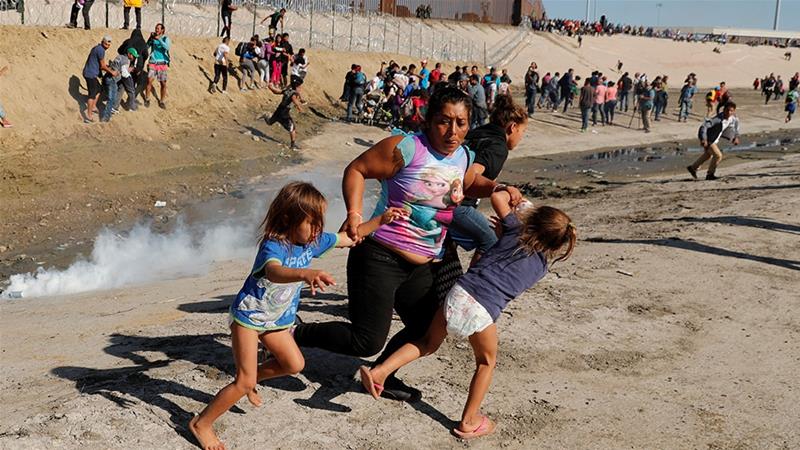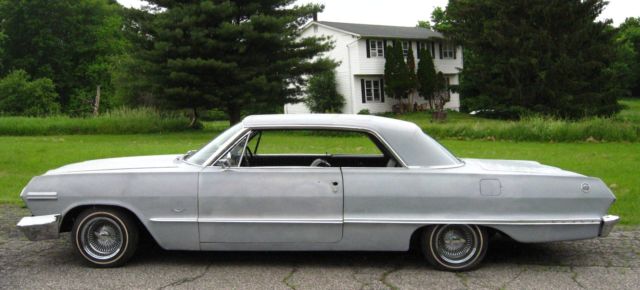
Our national sentiment has hardened considerably against immigrants and refugees in recent years. Our fears have been stoked by fast and furious stereotyping and our attentions spans can barely accommodate the sort of narrative that more accurately represents the human stories of immigration or refuge seeking. Christmas, the celebration of the birth of a loving and forgiving refugee, approaches. There can be no more appropriate time to hear the stories of those seeking shelter from chaos, or simply a better life for their children.
I’ll start with a relatively merry story from my own family. My in-laws now include a Syrian refugee. My wife’s third cousin, a vibrant and conscientious young nurse started volunteering in the refugee camps in Berlin a few years ago and took up with a bright, affable young man who had fled the violence in Syria. This young man doesn’t recognize terrorists and Islamic extremists as Muslim. He is just baffled at how anyone could so badly misunderstand the point of Islam. But as a young man of fighting age, neither the extremists nor the forces of Assad were inclined to give him the option of living peaceably. As a student in a government school, he was seen by the Assad Government as prime material for his armed forces. Rebels recognized this too, and saw him as soon to be against them if he wasn’t ready to join up with them. To obtain food for his family and avoid getting drafted, he obtained a fake military ID. This was risky move. It made him a target of militants against the government and put him at risk of execution if he got found out by government forces. So eventually, after seeing too many friends killed and being forced into hiding himself, he fled and wound up in Germany.
It was challenging for a few older members of my wife’s family when the young woman had a child with the Syrian man. But, his German has come along rapidly, and he’s well on the way towards winning them over. Being a good soccer player and a handy wrench with a BMW has helped him a good deal with the older men. A few more diaper changes would help him with the women in the family. He’s now integrating himself into his new homeland and my extended family. The very German culture of my wife’s family is hardly compromised. So there you go, turns out you can sustain German culture with Syrian babies.
It’s gratifying to have a relatively happy story of successful refuge seeking in my own family. But distressing to have so many frustrated ones so close to my own culture and nation. At our southern border a humanitarian crisis looms. Asylum seekers from Central America pile up in camps. It is legal for foreign nationals to present themselves at our international border seeking asylum. But our government has slowed processing of asylum pleas to prevent the entry of asylum seekers to our territory. Rallying in frustration a month before Christmas, asylum seekers were repelled with tear gas.

So what is the story of these people? Why would people walk thousands of miles from their homes to seek refuge in a country now infamously unwelcoming? These must be stories of desperation, but the politics of America First has drowned these stories. As we celebrate the birth of a refugee born thousands of years ago, we should find some time to hear the stories of asylum seekers at our own border today. I have catching up to do here, but for me these stories are much closer to home than the stories of Syrian refugees in Berlin.
I grew up in the presence of Latino gangs in the 70s. In my neighborhood in Mesa Arizona, it was the 8th Ave. Locos. There was machismo and mystique in it, but little violence. After school in the 70s, it was the sounds emanating from lowered mid 60s Chevys, primed and ready for paint for years on end, that introduced me to Shuggie Otis’ Strawberry Letter 23, The Eagles, Hotel California and lots of Carlos Santana. These remain in my mind as sounds of style, brotherhood, and self-esteem in the midst of prejudice. A Latino gang, then, was just a bunch of marginalized young men from the neighborhood that looked out for each other.
Then came the Reagan era war on drugs and many of those young men were sent to prison. As a white kid, I had the good fortune of moving on to a different life. But as I lived adjacent to 70s Latino gang life, people in Central America were experiencing the brutality of the cold war, which was not really cold in places like El Salvador and Nicaragua. Central America was never highly prosperous and was always highly unequal. The struggle in the 70s of poor farmers for land reform and economic opportunity that would allow for merely a modest subsistence, combined with the ideological and armed interventions of the USSR and the USA, blossomed into a series of civil wars in the region that sent tides of immigrants fleeing chaos and violence north to the US. El Salvadorans established communities in Southern California and this was the birthplace of the now dreaded MS13 gang.
Originally, MS13 was not so different from the 8th Ave. Locos I grew up with. It was just a band of young men looking out for each other on the somewhat meaner streets of the LA area. But then came the war on drugs and mass incarceration. And in the 90s, mass deportation. A loosely organized population of men hardened off in US prisons was sent back to El Salvador, now a vulnerable fledgling democracy. In the context of poor populations, weak governments and the drug trade, gangs like MS 13 have spread across Central America and grown into a social movement of nihilistic sociopaths. Young men are pressured with violence into joining and then pressured to commit violence as members, facing only violence from the state if they try to escape the violence of gang life. Sociopaths are made, not born. Regard for lives of others is systematically stripped from young men in the pervasive and too frequently unavoidable trap of Central American gang life. The crisis is now to the point where “of the 20 countries in the world with the highest murder rates, 17 are Latin American.” This is what the desperate asylum seekers congregating at our southern border are fleeing.
It’s hard to miss our complicity in any honest account of the conditions that have brought a humanitarian crisis to our own border. As a well-to-do American taxpayer, I am implicated as well. But the guilt of the privileged is just another facet of privileged self-absorption, usually useless and often counterproductive. My task, our task, at Christmas especially and through the year, is to get over ourselves and exercise some compassion for the suffering. The people most vulnerable to gang violence aren’t relatively well-off Americans, but the people piled up at our doorstep. We get that when we see photos of mothers with children in tow, fleeing tear gas at the San Ysidro border crossing. As I try to exercise better informed and more rational compassion this Christmas season, what strikes me most vividly is that the most vulnerable are often the young men our leaders tell us to fear. I want to thank my new Syrian brother in Berlin for that insight.
